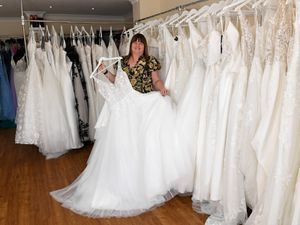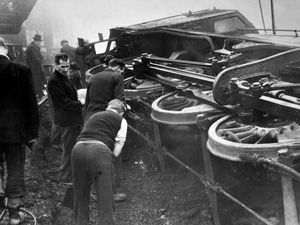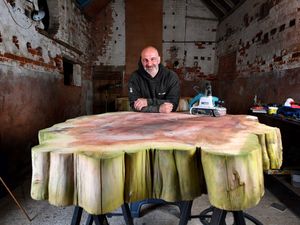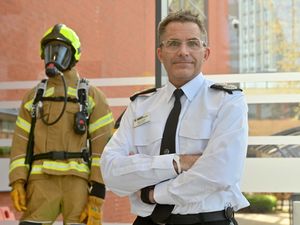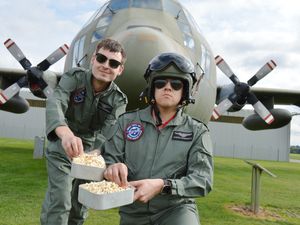Mother calls for more diversity in equestrianism
Erin-Mae Goodwin-Samuels was nine months old when she was given her first pony. By the time she was three, she was riding at horse shows, being led by her mother.
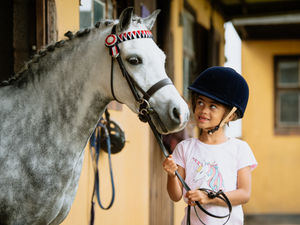
Like her mother Claire before her, she took to the sport like a duck to water. And now six, she has several junior trophies to her name.
But Claire admits she couldn’t help but feel a tinge of sadness when her mixed-race daughter asked during a club meeting: “Why are there no brown people here?”
Claire is now calling for greater diversity in equestrianism, saying there needs to be more role models to show the younger generation that sport is for everybody.
“It did make me feel a bit sad,” she says. “She had been looking around and the club, and said ‘why is there nobody else like me?’
“I didn’t have an answer, I didn’t know what to say. That was about three years ago, and nothing has really changed since then.”
Claire, who is 46, became involved in the sport when she joined a club on the Woodside estate in her home town of Telford when she was 11.
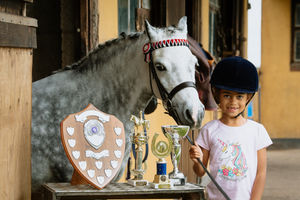
She stresses that she and Erin-Mae, whose father is from Belize, have always received the warmest of welcomes wherever they have been in the sport.
But she believes the lack of diversity may come from incorrect perceptions that the sport is for wealthy people who live in rural areas. She says the reality is very different and that anyone wanting to get involved in riding will be embraced by those who take part in the pastime.
“I think a lot of people must think that it is an elitist sport, or that you need lots of money or own a piece of land to take part, but that’s not the case at all,” she says.
“I’m a single mother, I grew up on a council estate. There used to be a riding club on the Woodside estate in Telford, which had a lot of children from the council estates that would help out.
“In return they would get a ride on the horses at the end. That’s how it started for lots of people of my age group.”
Claire says she has always found the riding clubs she has been involved with to be the most welcoming of environments, and assumes there must be a perception among minority communities that it is not open to them.
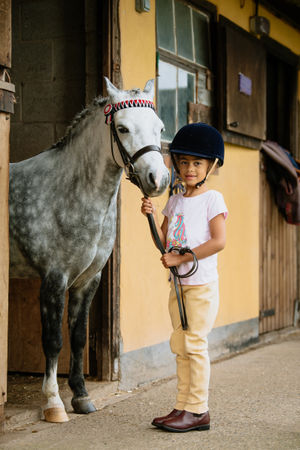
“It is for everyone, and it is really not very expensive. The riding clubs we go to have people coming from miles around, from places like Wolverhampton and Birmingham, but the diversity still isn’t there.
“I’ve also noticed in the glossy magazines we buy, and in the adverts, there are no people of different colours.”
British Equestrian, the sport’s governing body, acknowledges that there is work to be done, and says part of the difficulty is down to the location of many riding schools.
“We are aware that racial diversity is not an area where equestrian sport is strong and there is more work we can do in this area,” says a spokesman.
“We’re aware that if we look at riding centre location, over 96 per cent of centres are located in areas with lower than average ethnic diversity.”
British Equestrian says it has worked with a number of groups to promote inclusion in the sport, including St James’ City Farm in Gloucester and the Urban Equestrian Academy in Leicester.
The body has also supported and part-funded the Ebony Horse Club in Brixton, and continues to support its Young Equestrians club.
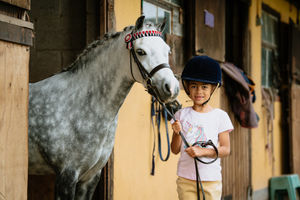
Sarah Jenkins, editor of Horse & Hound says she is aware that ethnic diversity is not what it could be.
“I’ve always been proud that in our sports, women and men compete on equal terms,” she says. “Though there is still some gender inequality, in that respect we are leagues ahead of some other disciplines. But black and minority-ethnic riders do not feature proportionally to the UK population in our many events across multiple disciplines.
“That is something the horse world needs to acknowledge and address, as indeed it is in small pockets.”
She says everyone in the sport has a duty to actively educate themselves about unconscious bias, adding: “We need to create an environment where everyone feels welcome, by demonstrating to all the kindness, encouragement and willingness to share knowledge that there is in our community.”
Claire says, thankfully, Erin-Mae’s observation at the moment amounts to little more than child-like curiosity. But she hopes that, within time, equestrianism will come to more broadly represent the community as a whole.
“This is not a totally white area, so you would think there would be more people from different backgrounds,” she says. “We need more role models, so that children do not grow up seeing themselves not represented.
“It still seems to be seen as a sport that is not available to everybody. We need to make it known that you don’t need to have lots of money, you don’t need to have your own land or stables. Horse riding is for everybody.”

